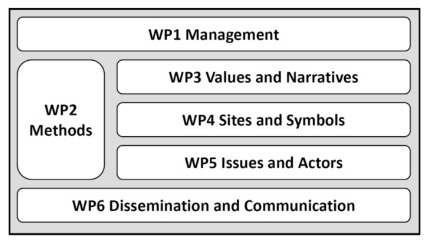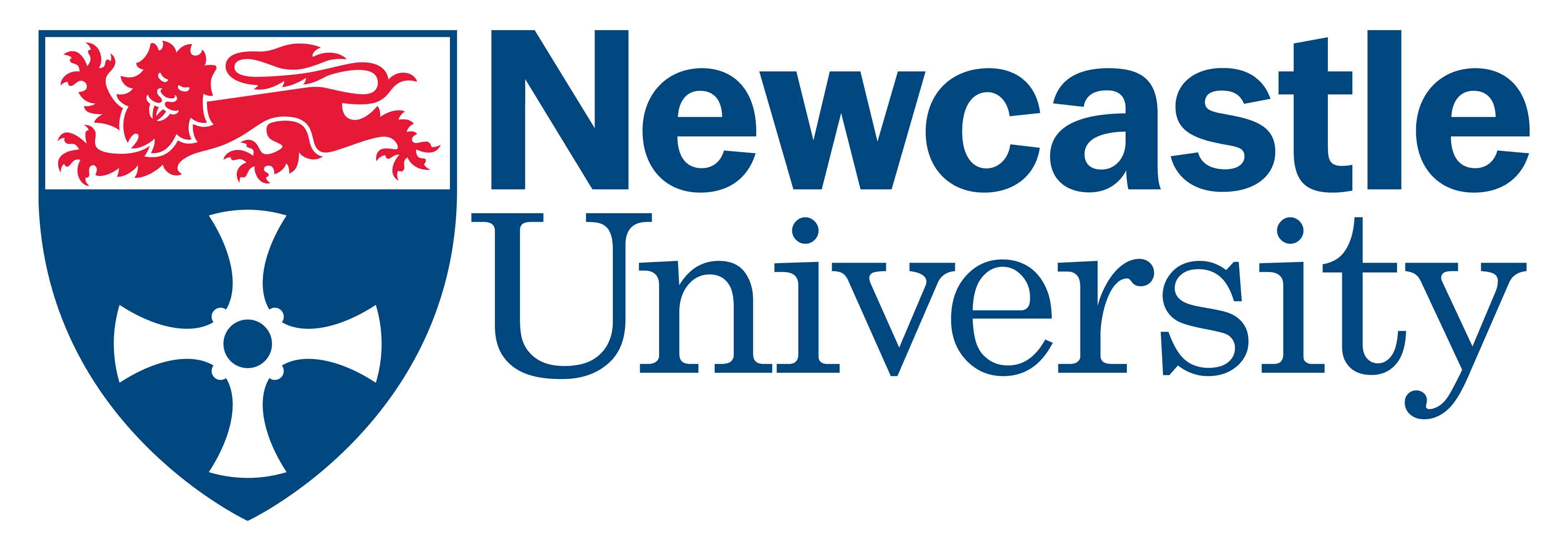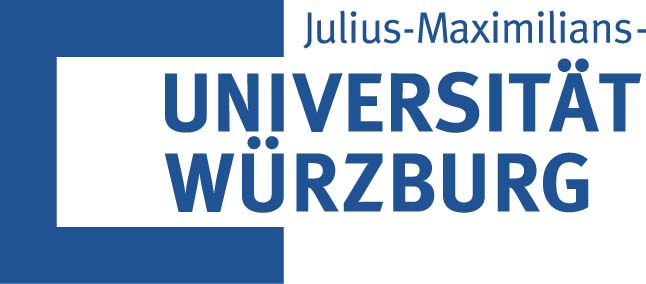Research Work Packages
The work programme is divided into six work packages.

WP1: Management
Project management includes the overall running of the project - reporting and financial management, staff development and the mentoring of junior researchers, ethical working practices and data management. Research management includes ensuring theacademicquality and timeliness of all research activities and outputs according to the objectives and work-plan.
WP2: Methods
This WP addresses Objective 5: To develop and consolidate methods for analysing museums, exhibitionsand memory sites as democratic public spaces, by identifying and analysing interactive, participatory education and engagement formats, which have the potential to promote a plural understanding of democracy in museums. They will be documented and discussed in our museum toolkit "Exhibiting Democracy" for museum professionals.
WP3: Values and narratives
Addressing Objective 1: To identify how museums (re)present and communicate central values and narratives of democracy in the UK and Germany, this WP will focus on fundamental questions of relevance to the whole project, including: Which democratic values and ideals are embodied within museums? How do museums represent and communicate democracy? What differences are there between the UK and Germany? What are the central democratic narratives and stories? What differences are there in the types of museums addressing democracy and democratic values? What are the historical reasons for such differences? What does this tell us about notions of democracy in each country? What is changing in such representative museums? What are the different affordances of temporary and permanent exhibitions?
WP4: Symbols and sites
Addressing Objective 2: To analyse historic symbols and sites connected to the idea of democracy in each country, in order to assess the impacts of differently constructed national narratives on contemporary expectations and ideologies of democracy, key research questions for this WP include: What sites, figuresand ‘constitution moments’ relating to issues of democracy are accorded significance and why? How are these represented in museums and memory sites? How do they compare or contrast transnationally, considering in particular ‘shared’ heritage and difficult memory? What interconnections are there between formal democratic memory sites and museums, and those touching on democratic issues? Can complex analytical concepts from difficult memory be applied to our sites, or is a new conceptual analysis needed?
WP5: Issues and actors
Addressing Objective 3: To identify how and why museums and cultural ‘activism’ are changing as ideas of democracy change, and what new forms of public-focussed museum work and cultural democracy may emerge in future, questions to be addressed include: Which global issues (eg democratic and human rights, migration and diversity, histories of the Holocaust or of colonialism) are being linked to museums and democratic ideals in each country? How and why do politicised movements relating to social justice mobilise ideas of cultural democracy and democratic memory? How are these addressed by museums and heritage/memory sites in the UK and Germany? How do they become materialised in museum work with communities and the public? Linking back to WPs 3 and 4, WP5 will consider how values and narratives of democracy are changing in connection to notions of the value of museums, symbols and sites, and their changing practices of public cultural participation. Looking forward, WP5 also investigates how social justice issues and cultural activism shape museum landscapes, to ask: What new museums have emerged from grassroots movements? What new forms of museum might emerge in future, resulting from contemporary practices of cultural democracy? How are notions of democracy changing and how does cultural activism and participation connect to this? How and why are museums un/willing to engage with this? How is the museum of the future imaged in each country and why?
WP6: Dissemination and communication
WP6 focuses on the dissemination and communication of the results of WPs2-5 and on the communication of Objective 4: To identify lessons for future museum practices and public engagement which strengthen their democratic basis in dynamic societies.




